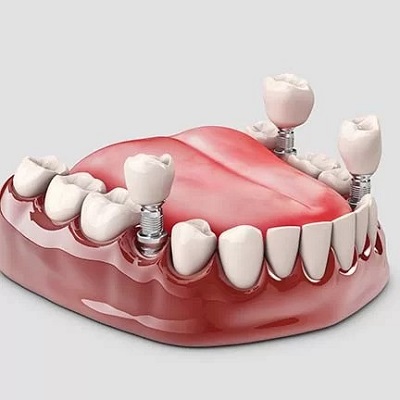Dental implants in Islamabad have become a popular and effective solution for replacing missing teeth. Offering both functionality and aesthetics, they are designed to blend seamlessly with your natural teeth while providing long-lasting support. One of the most frequently asked questions about dental implants is, "How long do they last?" The answer to this question depends on several factors, but with proper care and maintenance, dental implants can last a lifetime. Let’s explore the key factors that influence the longevity of dental implants and how you can ensure they last as long as possible.
What Is a Dental Implant?
Before diving into the lifespan of a dental implant, it’s important to understand what a dental implant is. A dental implant consists of three main components:
- The Implant Post – A titanium screw that is surgically placed into the jawbone, acting as the root of the missing tooth.
- The Abutment – A connector that holds the implant post and the crown together.
- The Crown – A prosthetic tooth that is custom-made to match the color and shape of your natural teeth.
Together, these components provide a durable and natural-looking replacement for missing teeth, offering patients the ability to eat, speak, and smile with confidence.
Average Lifespan of a Dental Implant:
While the dental implant itself (the titanium post) is designed to last a lifetime, the crown typically has a lifespan of 10 to 15 years. However, with good oral hygiene and regular dental checkups, the crown can last longer. The longevity of the implant post is largely due to the biocompatible nature of titanium, which integrates with the jawbone in a process known as osseointegration. This creates a stable foundation for the crown.
Factors That Influence the Longevity of Dental Implants:
Several factors can affect how long a dental implant will last. These include:
1. Oral Hygiene:
The most critical factor in ensuring the longevity of a dental implant is maintaining good oral hygiene. Just like your natural teeth, dental implants require regular brushing, flossing, and professional dental cleanings. Plaque and tartar can still accumulate around the implant, leading to gum disease, which can weaken the implant’s support structure.
2. Lifestyle Habits:
Certain habits, such as smoking or excessive alcohol consumption, can significantly reduce the lifespan of a dental implant. Smoking, in particular, can impair the healing process after the implant surgery and increase the risk of implant failure. Additionally, grinding your teeth (bruxism) can put excessive pressure on the implant, leading to premature wear or damage to the crown.
3. Bone Health:
The success and longevity of a dental implant also depend on the health and density of your jawbone. For the implant to be securely anchored, sufficient bone mass is needed. Bone loss, often due to untreated gum disease or tooth extractions, can jeopardize the implant’s stability. In such cases, bone grafting may be necessary before implant surgery.
4. Quality of the Implant and Procedure:
The materials used in the implant, as well as the skill of the dentist or oral surgeon performing the procedure, can also affect the longevity of the implant. High-quality titanium implants and a skilled professional can greatly increase the chances of long-term success.
5. Regular Dental Checkups:
Routine dental visits are essential for monitoring the health of your implant and detecting any early signs of complications. Your dentist can assess the condition of the crown, abutment, and implant post, as well as check for gum inflammation or bone loss. Regular cleanings and examinations ensure that potential issues are addressed before they become major problems.
Signs That a Dental Implant Needs Replacement:
While dental implants are designed to be durable, there are signs that may indicate the need for replacement or repair:
- Loosening or Movement – If your implant feels loose or begins to shift, it could indicate an issue with the bone support or the implant itself.
- Gum Recession – If the gums around the implant begin to recede, it may expose the implant post, leading to discomfort or infection.
- Infection – Infections around the implant can compromise its stability and lead to implant failure if left untreated.
- Wear and Tear on the Crown – Over time, the dental crown may wear down or become damaged, necessitating replacement.
If you notice any of these signs, it’s important to see your dentist as soon as possible to address the issue.
How to Extend the Lifespan of Your Dental Implant:
To maximize the lifespan of your dental implant, consider the following tips:
- Maintain excellent oral hygiene by brushing twice a day and flossing daily.
- Avoid smoking and limit alcohol consumption, as these can negatively impact the health of your gums and bone structure.
- Visit your dentist regularly for checkups and cleanings to monitor the health of your implant and surrounding tissues.
- Wear a mouthguard if you grind your teeth at night to protect the crown and implant from excessive pressure.
Conclusion:
In summary, a dental implant can last a lifetime with proper care and attention. While the implant post is incredibly durable, the crown may need to be replaced every 10 to 15 years. By practicing good oral hygiene, avoiding harmful habits, and regularly visiting your dentist, you can ensure that your dental implant remains a permanent and reliable solution for missing teeth. If you’re considering a dental implant, consult with your dentist to learn more about the procedure and how to maintain it for years to come.
For more information visit Dynamic Clinic PK





Comments